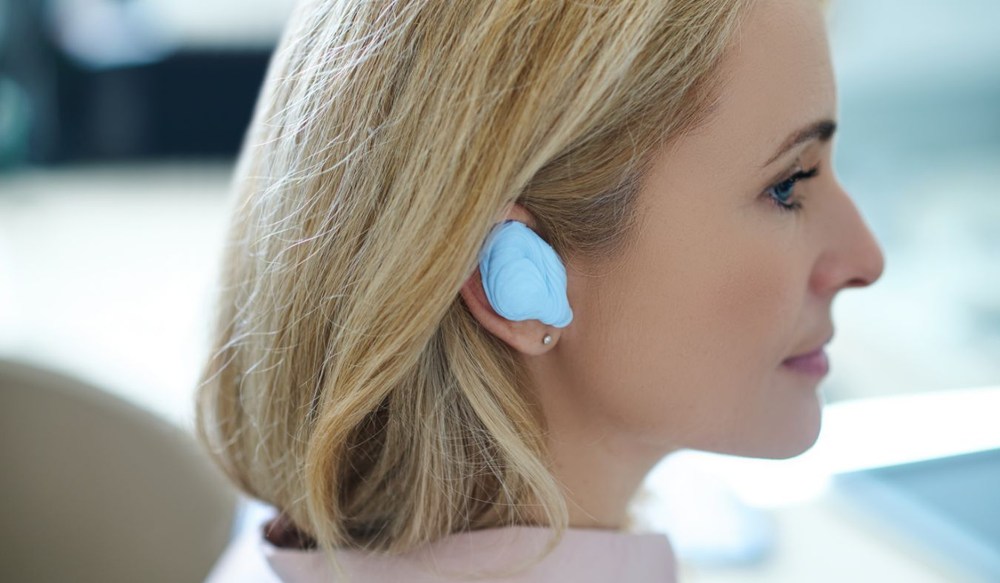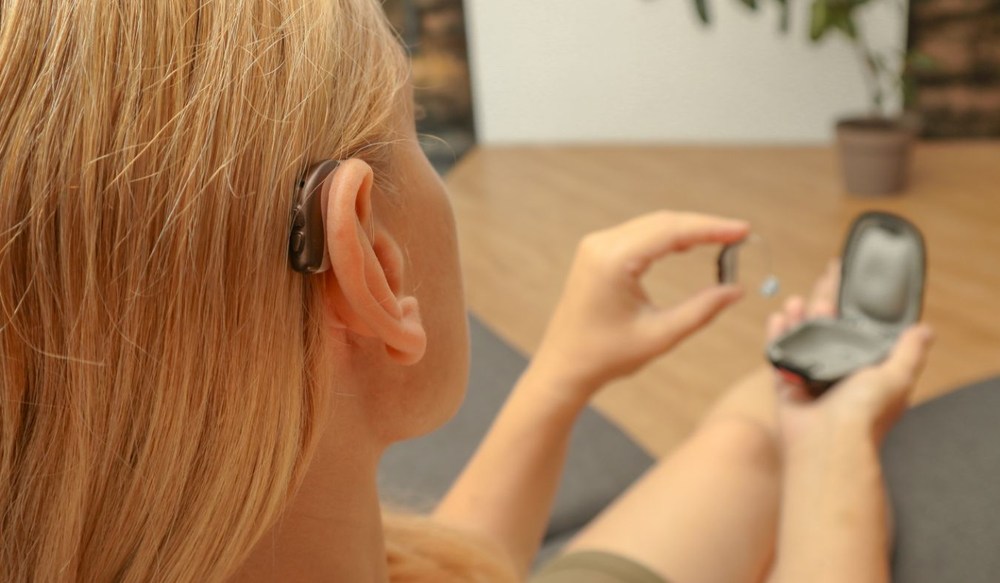Can Hearing Loss Be Reversed? When It’s Possible and When It’s Not
When hearing begins to change, it’s natural to wonder whether it can get
NEW! Improve your hearing & how your brain processes sound with the new LACE AI PRO. Learn More

By: admin | September 24, 2025
Warm weather brings out activities that can put your hearing at risk in ways you might not expect. Beach trips expose you to wind and water that can affect your ears, while outdoor concerts and festivals often feature sound systems cranked up to compete with open-air acoustics. Even seemingly quiet activities like boating involve engine noise and wind that can be louder than you realize. Add in the crowds at baseball games, motorcycles at summer rallies or the sounds of construction and lawn equipment that seem to run nonstop during warmer months, and you’re facing more potential hearing hazards than during any other season.
Your hearing doesn’t take a vacation just because you’re having fun outdoors. The combination of loud environments, wind, water and extended exposure times can create perfect conditions for hearing damage or ear problems. The good news is that protecting your hearing during warm-weather activities doesn’t mean staying inside or skipping the events you look forward to all year. It’s about being aware of the risks and taking simple steps to enjoy everything the season has to offer without compromising your hearing health. A little planning can help you have fun while keeping your ears safe.
Noise can damage the auditory system by overwhelming the delicate structures inside the inner ear. The cochlea, a spiral-shaped organ, contains thousands of tiny hair cells that convert sound vibrations into electrical signals your brain can understand. When sound levels are safe, these cells bend gently and recover. However, exposure to loud noise causes them to bend too much or too often, leading to fatigue and sometimes permanent injury. Since these cells do not grow back, once they are damaged, the ability to detect certain pitches or hear clearly in noisy places can be lost.
Another way noise harms your auditory system is through strain on the auditory nerve pathways. Prolonged loud environments can overactivate these pathways, creating a sensation of ringing or buzzing in the ears, known as tinnitus. This constant stimulation can also make it harder for your brain to separate important sounds, like voices, from background noise. Over time, repeated exposure to loud noise not only affects the ear itself but can also change how your brain processes sound, making listening more difficult even in quieter places.
Even short bursts of very loud noise, like fireworks or a blast from a nearby speaker, can cause sudden hearing changes. These intense sounds create pressure waves that damage the inner ear almost instantly. While the effects may sometimes feel temporary, like muffled hearing after a concert, repeated experiences like this can add up and result in lasting hearing loss.
Outdoor concerts, fireworks, sporting events and even equipment like lawnmowers or power tools can reach volumes that stress the delicate hair cells inside the inner ear. Once these cells are damaged, they do not grow back, which is why repeated or prolonged noise exposure is such a concern. Even short bursts of very loud sound, like fireworks going off nearby, can leave your ears ringing and cause lasting harm.
Heat and humidity can also play a role. Hot weather increases the chance of sweating, which can affect the way hearing aids function if you wear them. Prolonged exposure to moisture may also create conditions that make the ear canal more prone to irritation. For those spending long days outdoors, hats and shade can help protect not only your skin but also your ears from heat and sun.
Water activities bring another layer of concern. Swimming in pools, lakes or the ocean can expose ears to bacteria and excess moisture, sometimes leading to irritation or infection. If you wear hearing aids, it’s especially important to remember that most are water-resistant, not waterproof and should not be worn while swimming or showering.
Outdoor summer activities often come with loud noises that can damage your hearing. Fireworks, concerts and sporting events are some of the most common sources of high noise levels.
Lawnmowers and power tools used for yard work can also reach volumes that may harm your ears if you are exposed for too long. Motorcycles and boats produce sounds much louder than normal conversation.
Being aware of these noisy situations helps you make better choices to protect your hearing. Knowing what to expect makes it easier to keep your ears safe while enjoying outdoor fun.
Spending time in the water is a favorite summer activity, but it can also affect your ears in ways that are easy to overlook. When water becomes trapped in the ear canal, it creates a moist environment that encourages bacterial growth. This can sometimes lead to swimmer’s ear, a condition that leaves the ear feeling sore, itchy or irritated. While it is common, it can be uncomfortable and may interfere with your enjoyment of summer sports and activities.
People who swim often or spend extended time in pools, lakes or the ocean are at greater risk for these types of infections. Warm, humid conditions combined with water exposure make it easier for bacteria to thrive, especially if the water quality is poor. Children are especially susceptible since they spend more time playing in the water and may not notice early symptoms like mild discomfort or itching.
The good news is that small steps go a long way in protecting ear health during the summer. Wearing swim caps or earplugs designed for water use can help keep ears dry, while gently tilting your head to let water drain out after swimming prevents moisture from lingering. Drying your ears with a soft towel and avoiding the use of cotton swabs can also help reduce irritation.
Wind and dust are common during outdoor play, especially in open fields or on breezy days. These elements can enter your ears and cause irritation or a feeling of fullness.
If dust or small particles get into your ear canal, they may lead to itching or even an infection if not removed properly. Wearing hats with wide brims or using headbands can help shield your ears from wind and dust while you enjoy outdoor activities.
After a busy summer of sports and outdoor fun, you might notice some changes in how well you hear. These changes can be easy to miss at first, but paying attention helps you spot possible hearing loss early.
Some signs to watch for include needing to turn up the volume on the TV more than usual or having trouble understanding people when there is background noise. You may also find yourself asking others to repeat themselves more often.
Other early signs include:
Wearing protective gear for your ears might not be the first thing you think about when getting ready for summer sports. Earplugs and earmuffs are simple tools that help block out loud sounds from motors, whistles or cheering crowds. These can lower the risk of hearing loss, especially if you spend a lot of time in noisy places.
Look for ear protection that fits well and feels comfortable so you will actually want to wear it. Some earplugs are made just for sports and stay in place even when you move around a lot.
Using protective gear is an easy way to keep your hearing safe while still enjoying all the action. Taking this step helps keep your ears healthy during every summer activity.
When swimming or taking part in water sports, keeping your ears dry can help prevent discomfort and infection. Picking the right earplugs depends on how well they fit, how comfortable they feel and how much water protection they provide.
Silicone earplugs are a popular choice because they mold to the shape of your ear and keep water out. Pre-molded reusable plugs are also available and often stay in place during active movement.
Some people prefer custom-fit earplugs made by audiologists for a secure fit, especially if swimming is a regular activity. Whichever type you choose, make sure the earplugs are designed for use in water to get the best results.
The excitement of a concert or sporting event often comes with sound levels much higher than what our ears are built to handle. Cheering fans, booming music and amplified announcements can all combine to create noise levels that may put your hearing at risk. Even short bursts of very loud sound can leave your ears ringing, and repeated exposure over time may cause lasting damage. That is why paying attention to your listening environment is just as important as protecting your skin in the sun.
One of the simplest ways to reduce risk is by being mindful of where you sit or stand. The closer you are to loudspeakers, the higher the volume your ears are exposed to. Moving just a few rows back or choosing a spot farther from the speakers can make a significant difference. It also helps to give your ears short breaks by stepping into quieter areas during intermissions or timeouts, allowing them to recover from the constant noise.
For added protection, earplugs designed for concerts and events are a smart investment. Unlike foam plugs that block sound unevenly, these special earplugs lower the volume while keeping the music and crowd noise clear. Many are reusable, discreet and comfortable, making them an easy way to keep the experience enjoyable without the worry of long-term harm.
When we think about summer fun, hearing protection usually isn’t the first thing that comes to mind. Still, the same activities that make warm weather so enjoyable can also strain your ears if you are not careful. Choosing to take small steps, like giving your ears a break from noise or making sure water drains properly after a swim, helps you hold on to those experiences without unwanted side effects later on. With a little attention, you can enjoy the season fully and keep your hearing healthy.
If you have concerns about changes in your hearing or want advice on how to protect your ears during summer activities, we are here to help. Contact Innovative Hearing Care in Riverside, CA at (951) 291-9081 to schedule a visit and learn more about simple ways to keep your ears safe while still enjoying everything the season has to offer.
Tags: hearing loss prevention tips, hearing protection products

When hearing begins to change, it’s natural to wonder whether it can get
By: admin | January 19, 2026

Autumn weather brings a combination of conditions that can affect your
By: admin | November 18, 2025

Warm weather brings out activities that can put your hearing at risk in
By: admin | September 24, 2025
